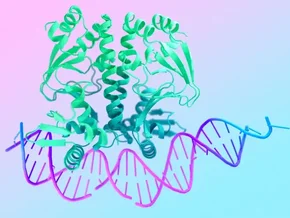Internet addiction the same as drink or drug dependency

Scientists believe that internet addiction is on a par with drug and alcohol dependency because it causes similar changes to nerves in the brain.
The groundbreaking research, which was carried out in China, revealed the similarities after 17 youngsters suffering from internet addiction underwent MRI brain scans.
The scans showed that the wiring of the brain was affected in those who were heavily dependent on going online.
It is now hoped the findings will go towards developing a successful treatment for internet addiction.
To read the latest edition of Healthcare Global, click here
- Hospital mergers do not result in financial benefits
- Operations done by middle-aged surgeons are ‘safest’
- Cancer Research UK is Tesco’s ‘Charity of the Year’
Internet dependency was found to damage the white matter fibres in the brain, which are responsible for the emotional, attention and decision making functions of the brain.
Previous studies into addiction have noted this type of damage in people who are dependent on drugs and alcohol.
Scientists are now of the opinion that addiction to a behaviour is just as dangerous as substance abuse.
To carry out the study the researchers from the Chinese Academy of Sciences in Wuhan collected MRI scans from 35 people in total, men and women all aged between 14 and 21 years of age.
Seventeen of these were suffering from internet addiction and 16 were not. Their brain scans were compared and it was this comparison that highlighted the damaged to the brain’s white matter.
Internet addiction disorder (IAD) has only been recently been recognised as a medical condition and is typically classified as someone spending an excessive amount of time online, so much so it affects the day-to-day activities of their lives.
Distress is also another symptom of IAD, as are involuntary typing motions, both of which occur when addicts are prevented from going online.
The findings have been published in the Plos One journal.
Writing in the publication, the researchers said: “Overall, our findings indicate that IAD has abnormal white matter integrity in brain regions involving emotional generation and processing, executive attention, decision making and cognitive control.
“The results also suggest that IAD may share psychological and neural mechanisms with other types of substance addiction and impulse control disorders.”
Also commenting on the research, Dr Henrietta Bowden-Jones, a consultant psychiatrist based at Imperial College London, said: “This type of research exploring the differences between normal brains and brains of people who suffer from internet addictions is groundbreaking as it makes clear neuroimaging links between internet addiction and other addictions such as alcohol, cocaine and cannabis amongst others.'
“It is.. possible to consider this study as one of the seminal papers in determining how future generations of clinicians will view internet addiction,” she added.
There are now calls for more research and further investigations to be carried out into the effects of IAD.
The Healthcare Global magazine is now available on the iPad. Click here to download it.
- Japan’s healthcare services are the best in the worldTechnology & AI
- Anti-hangover pill Myrkl may cause long-term health problemsMedical Devices & Pharma
- Drug discovery and development processTechnology & AI
- U.S. Employees Using Drugs Costing Businesses $200 BillionMedical Devices & Pharma






